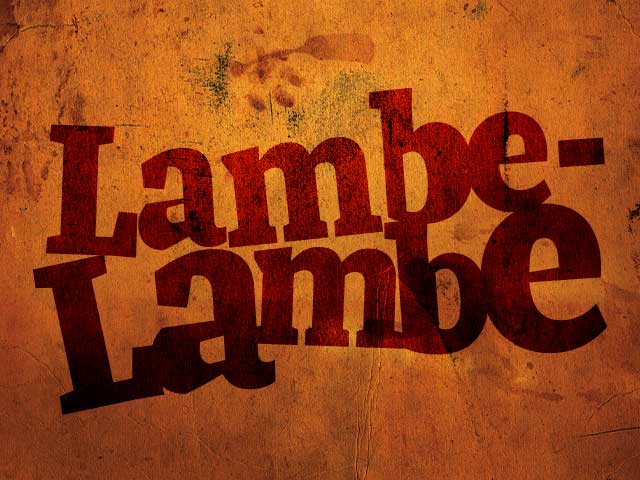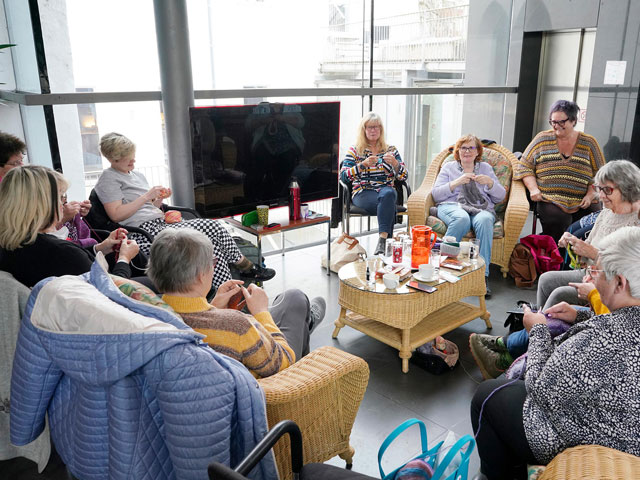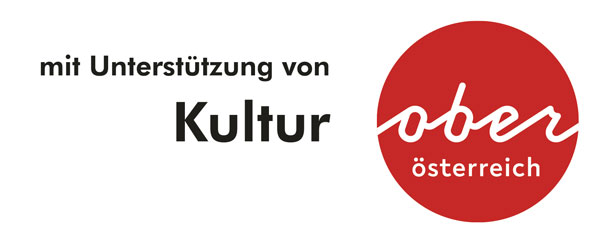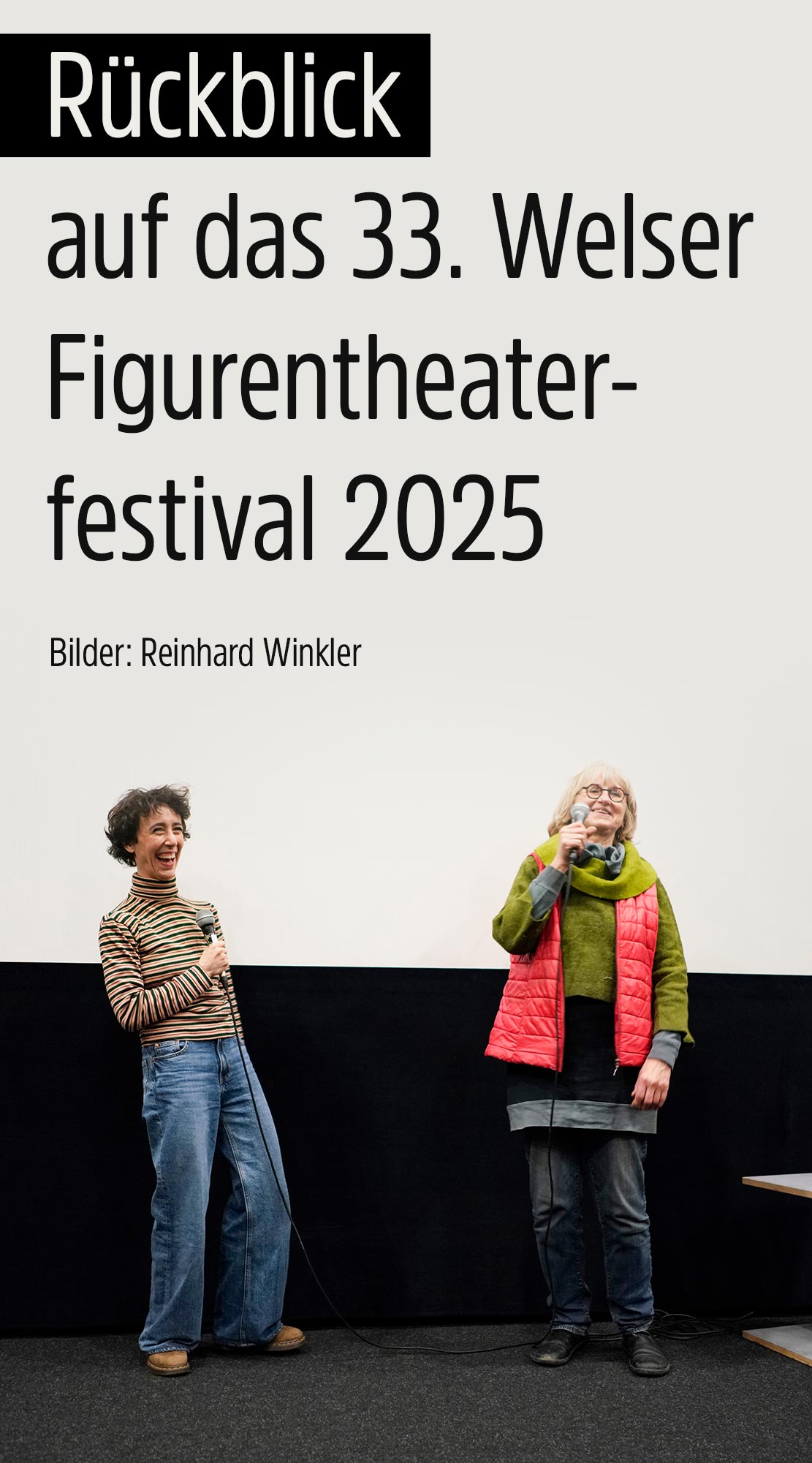 Dear friends of puppet theatre,
Dear friends of puppet theatre,
dear audience,
On March 12, 2026, we will launch the 34th edition of the International Wels Puppet Theatre Festival. Once again, we have put a great deal of effort into designing the programme for you and have put together a high-calibre selection. Our aim is to bring you joy, to make you laugh, but also to give you food for thought. Or, as the protagonists of this year’s farewell production say: We want to warm your hearts …
Admittedly, the devilish ladies with arsonist ambitions in “Gottlieb! It’s Burning!” do not voice this invitation without a touch of sarcasm. For the very next sentence is: We want to set you ablaze! And they do not mean this merely metaphorically, nor do they mean only the hearts of the audience, but the entire hall, the theatre, the world …














